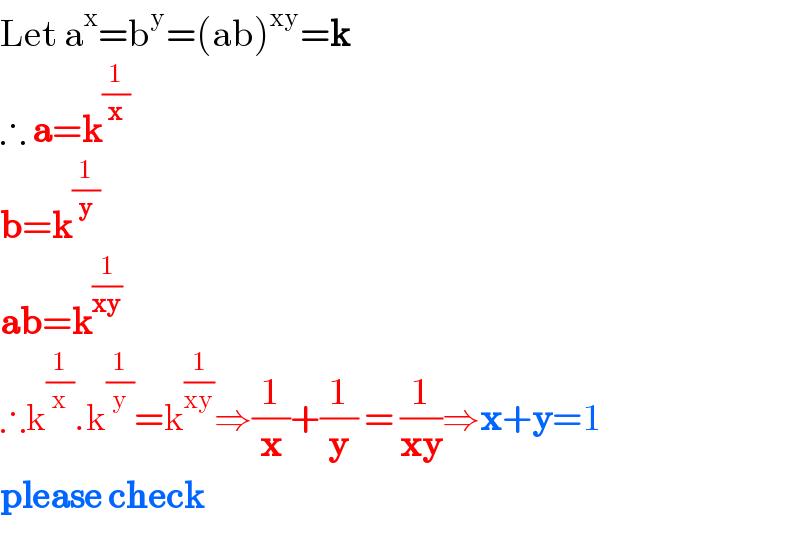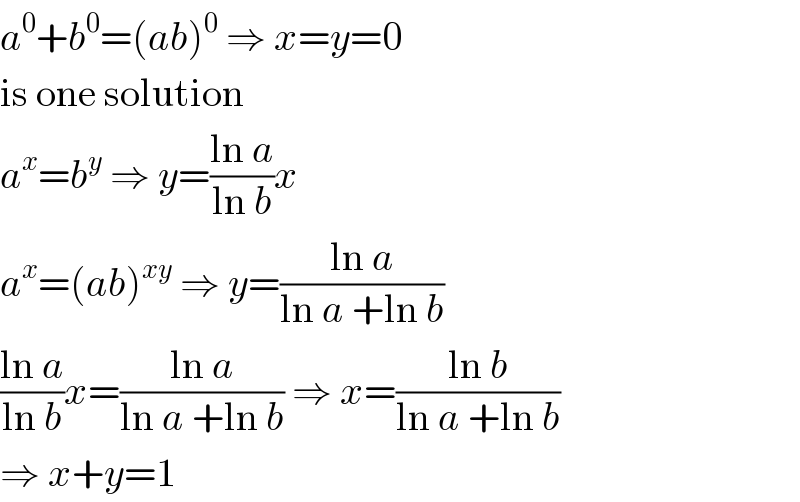
Question and Answers Forum
Question Number 68712 by Rio Michael last updated on 15/Sep/19

Commented byPrithwish sen last updated on 15/Sep/19

Commented byMJS last updated on 15/Sep/19

Commented byPrithwish sen last updated on 15/Sep/19

| ||
Question and Answers Forum | ||
Question Number 68712 by Rio Michael last updated on 15/Sep/19 | ||
 | ||
Commented byPrithwish sen last updated on 15/Sep/19 | ||
 | ||
Commented byMJS last updated on 15/Sep/19 | ||
 | ||
Commented byPrithwish sen last updated on 15/Sep/19 | ||
 | ||